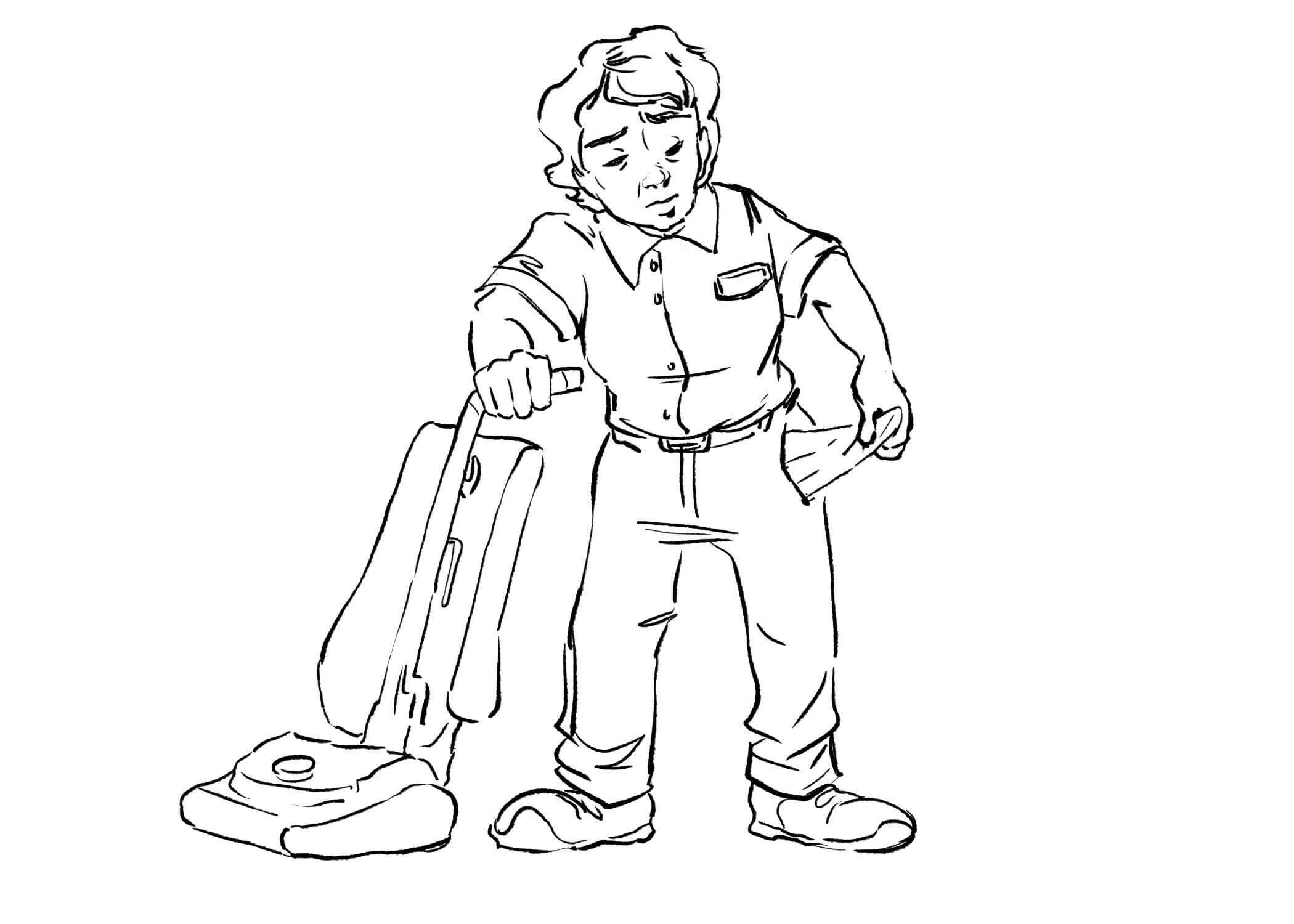Editorial Board: USC must support custodial staff
On Monday, more than 100 USC custodians, students and faculty marched from Trousdale Parkway to USC Village to protest for fair wages and benefits from Aramark, the subcontractor through which USC has hired many of its campus workers for years. The current deal in place expired Thursday, and the Service Employees International Union, the union that represents the custodians, is in the process of negotiating a fairer deal for workers.
Specifically, organizers told the Daily Trojan they are asking Aramark to acknowledge that its workers’ needs are not fully met by the minimum wage, and widen access to health care benefits by reducing the employee contribution requirement. As negotiations with Aramark continue, it’s worth noting that USC has been patronizing this company for hiring services for the past two decades. And yet, in response to Monday’s protest, the University said it did not have a comment because it is “not involved in the negotiations.”
But even if USC may not want to be involved, it already is by giving Aramark business. According to a brochure distributed at the protest, the current president and CEO of Aramark made $7,847 per hour last year, while the company’s employees at USC say they are struggling to access basic health care and make ends meet. They are, after all, living in the eighth most expensive city in the world. To continue patronizing a company and turn a blind eye to the abuses and exploitation that its workers are protesting is to play an active role in said abuses and exploitation.
USC often boasts about its role as one of Los Angeles’ biggest employers, and a leading creator of jobs in the country. One of the selling points of USC Village was the myriad employment opportunities that businesses and residence halls would offer to the community. But being a big employer does not equate to being a fair one. It’s not enough for USC to simply hire employees from the surrounding community. The University must also take an active role in shaping how employees and on-campus workers are treated.
The custodians, security guards and other workers USC hires through Aramark are an integral part of student, faculty and visitors’ experiences. They keep our campus and the area around campus clean and safe; they are a crucial component of students’ everyday lives, and their defining roles in the Trojan experience cannot be taken for granted any longer.
One of the ways USC can take an active role is through reconsidering its ties with Aramark if the company does not meet its workers at the table, and agree to suitable terms. If the University is as big of an employer as it claims, then Aramark must benefit greatly from USC’s continued patronage. And as one of the most powerful institutions of higher education in the country, USC arguably has more bargaining power than other parties involved. After completing the ambitious USC Village and surpassing the equally ambitious goals of the University’s fundraising campaign, Campaign for USC, for USC to understate its power, influence and financial clout now that its workers need them is a display of tone-deafness and apathy.
These protests led by USC workers are nothing new, and have spanned years — years of the same demands, frustrations and inequalities. Over the course of the past decades, USC has embarked on a number of projects such as housing expansion and other large-scale constructions that have often had negative or disruptive effects on the surrounding community. Some of these effects include the displacement of families and communities of color, which has led to negative effects on locals’ health and access to health care among other struggles.
In press release after press release, the University has tried to save face by pointing out how its growth has simultaneously yielded job growth. But in light of these protests and USC’s refusal to use its influence to protect its workers, these are claims we can no longer accept at face value.
Perhaps, as USC says, the University is “not involved” in the negotiations right now. But as students, we must collectively demand that the University get involved. USC aims to make its student body into active, civically minded leaders and community members. And yet, in this situation, we are arguably learning more about leadership and community involvement from Aramark protest organizers than from our administrators.
In order to meet our responsibilities as Trojans and become the engaged leaders our University wants us to be, we must ask more of USC and stand in solidarity with Aramark-contracted employees here on our campus and in our community. We must give back to the custodians and workers who have inextricably shaped our experiences as students for the better, and moreover, we must demand that our University do same.
Daily Trojan Spring 2018 Editorial Board

